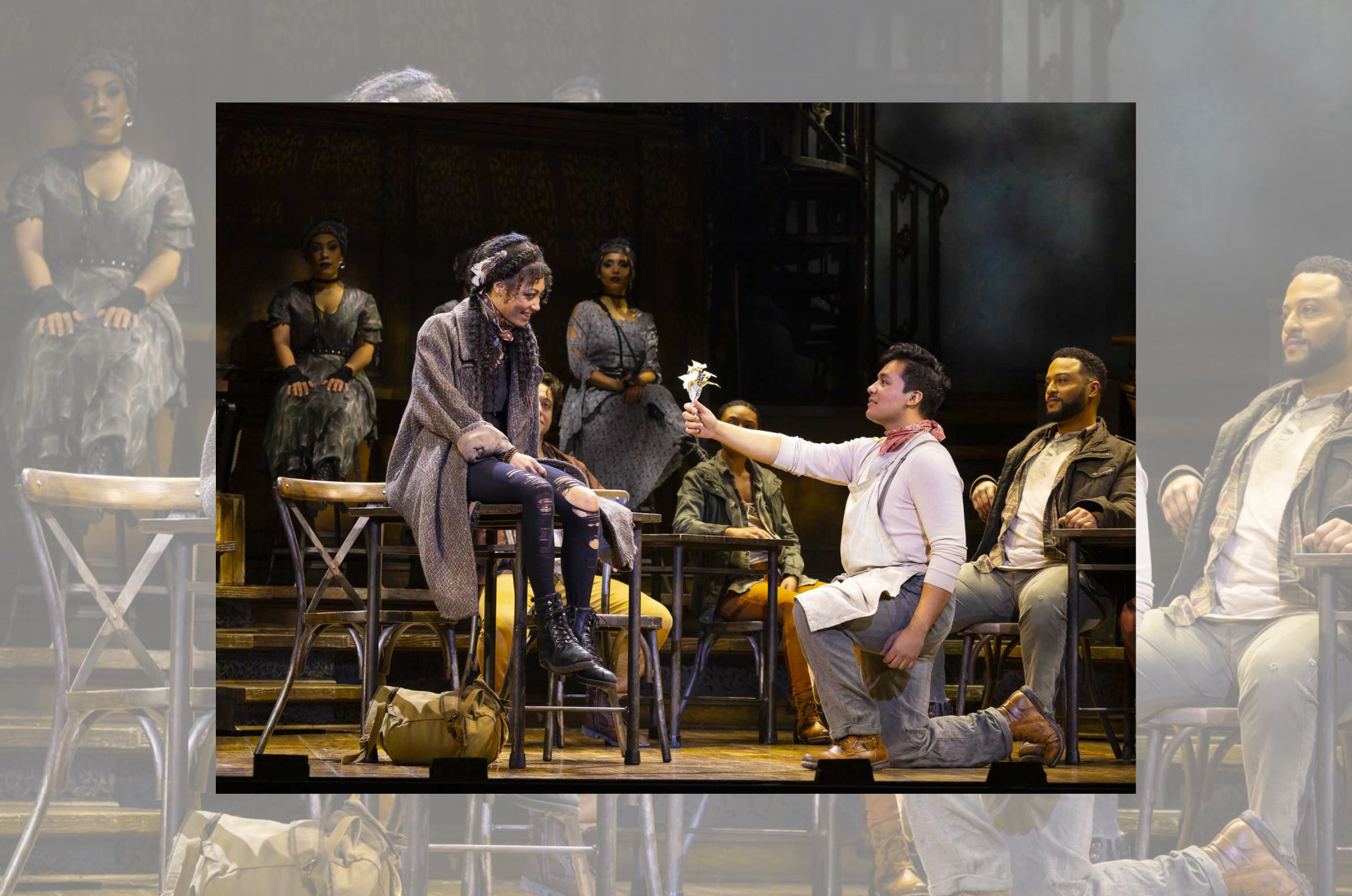REVIEW: Hadestown at Mirvish Productions
As if by fate, Hadestown has landed in Toronto.
And oh, what a kind fate that is.
Anaïs Mitchell’s folk musical about poet Orpheus, muse Eurydice, and the foolish choices that catapult the lovers between worlds, is as much an experiment in aesthetics as it is a re-telling of Greek mythology. Mitchell’s musical composition seldom stays in one genre for too long, and that’s a good thing – she holds a powerful pen, skipping from contemplative pop to defiant jazz to jocular bluegrass with ease. Coupled with director Rachel Chavkin’s incisive world-building and blocking, the world Hadestown references Americana but doesn’t languish in it: as the silver-suited Hermes narrates for us, the show’s setting is a cut-and-dry case of “don’t ask where, brother, don’t ask when.”
Hadestown digs into the pain of mythology: the rape of Eurydice, the captivity of Perseophone, the anguish of Orpheus, the nihilism of Hades. This isn’t a story with an easy villain, at least not the way Mitchell’s chosen to tell it – while it is Hades who seduces Eurydice into the Underworld, luring her into hell with a promise of bed and board, it’s also Hades whose emotional arc perhaps hurts the most to watch in the second act. Mitchell’s not interested in the binaries of hero and antagonist, beginning and ending, gods and men – the gorgeousness of Hadestown lies in its lingering in the space between extremes.
There’d be no Hadestown to catch in Toronto without a mostly excellent cast of triple threats onstage. Perhaps the greatest delight of the touring company is J. Antonio Rodriguez, who navigates the vocally tricky role of Orpheus with humour and tuneful, appropriate twang. Matthew Patrick Quinn’s Hades is also just perfect, deep and robust, as affecting as Patrick Page’s iconic Broadway performance but not at all a copy of it. Maria-Christina Oliveras as Persephone and Hannah Whitley as Eurydice, too, are lovely foils of each other, endlessly watchable and nuanced in their development of tortured, hopeful women.
Nathan Lee Graham’s Hermes will be divisive – I personally found his interpretation of the messenger god to be overly showy, with an odd, frequently nasal effect to his singing. I bought tickets to the show twice this week, and both times, found the quieter, less strident subtleties of his performance in the finale to be the most compelling of his solos to watch by far. Hermes is a rhythmically tough, emotionally complex role, and Graham often brings surprise and depth to the character – I just wish he would dial the performance back a few notches before the final few measures.
In addition to the wrenching story and music, you’ll leave Hadestown remembering Bradley King’s industry-defining lighting design (particularly in the not-quite-act-one-finale “Wait for Me”), Rachel Hauck’s set (and its re-imagining of the entryway to hell, which is markedly different from Broadway’s in the touring production), and Michael Krass’ sumptuous costumes. Hadestown is a feast for the eyes and the heart, in a way most recent musicals can only aspire to – it really is that good.
What’s stuck with me about Hadestown for the last several years is its poignant commentary on storytelling and why we do it, even when we already know the ending. We tell stories (and write reviews) because they build community. We do it to leave a record of the things that have happened, and in the hopes that one day, things might change. And in this case, we do it to ensure the people of Toronto seize their chance to see a piece of theatre that will make them laugh, cry, shimmy, and smile.
“It’s a tragedy,” warns Hermes, smiling in the finale despite the grim events of the show leading up to it.
“But we sing it anyway.”
Hadestown runs at the Royal Alexandra Theatre through August 20. Tickets are available here.
Intermission reviews are independent and unrelated to Intermission’s partnered content. Learn more about Intermission’s partnership model here.















Comments